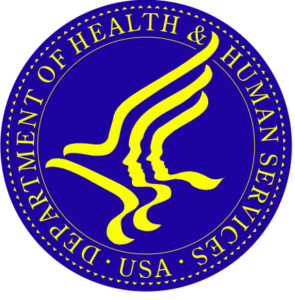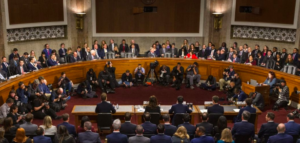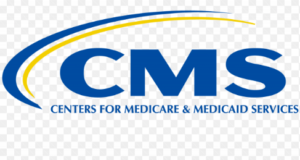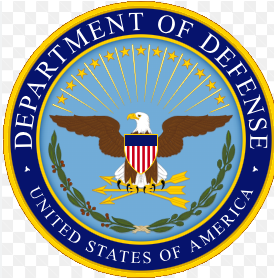- CMS: Medicare Program; Implementation of Prior Authorization for Select Services for the Wasteful and Inappropriate Services Reduction (WISeR) Model
- Public Inspection: CMS: Medicare Program: Implementation of Prior Authorization for Select Services for the Wasteful and Inappropriate Services Reduction Model
- CMS: Secretarial Comments on the CBE's (Battelle Memorial Institute) 2024 Activities: Report to Congress and the Secretary of the Department of Health and Human Services
- HHS: Patient Protection and Affordable Care Act: Marketplace Integrity and Affordability
- HRSA Announces Action to Lower Out-of-Pocket Costs for Life-Saving Medications at Health Centers Nationwide
- Public Inspection: HHS: Patient Protection and Affordable Care Act: Marketplace Integrity and Affordability
- Increased Risk of Cyber Threats Against Healthcare and Public Health Sector
- Eight Hospitals Selected for First Cohort of Rural Hospital Stabilization Program
- Announcing the 2030 Census Disclosure Avoidance Research Program
- CMS: Medicare Program; Hospital Inpatient Prospective Payment Systems for Acute Care Hospitals and the Long-Term Care Hospital Prospective Payment System and Policy Changes and Fiscal Year 2026 Rates; Requirements for Quality Programs; and Other Policy Changes; Correction
- CMS: Medicare Program; Hospital Inpatient Prospective Payment Systems for Acute Care Hospitals and the Long-Term Care Hospital Prospective Payment System and Policy Changes and Fiscal Year 2026 Rates; Requirements for Quality Programs; and Other Policy Changes; Correction
- CMS: Medicare and Medicaid Programs; Contract Year 2026 Policy and Technical Changes to the Medicare Advantage Program, Medicare Prescription Drug Benefit Program, Medicare Cost Plan Program, and Programs of All-Inclusive Care for the Elderly; Correction
- CMS: Medicare and Medicaid Programs; Contract Year 2026 Policy and Technical Changes to the Medicare Advantage Program, Medicare Prescription Drug Benefit Program, Medicare Cost Plan Program, and Programs of All-Inclusive Care for the Elderly; Correction
- CMS: Medicare Program; Prospective Payment System and Consolidated Billing for Skilled Nursing Facilities; Updates to the Quality Reporting Program for Federal Fiscal Year 2026
- CMS: Medicare Program; FY 2026 Hospice Wage Index and Payment Rate Update and Hospice Quality Reporting Program Requirements
Pennsylvania Human Services Department’s Website Update in Process
 In partnership with the Governor’s Office and the Commonwealth’s web development vendor, the Department of Human Services (DHS) is moving to a new public-facing website platform. Deployment of the new platform began the evening of Tuesday, May 28. This transition will only affect dhs.pa.gov, and will not affect COMPASS, CWIS, PROMISe, PELICAN, or any other custom developed platforms. With a project of this size, DHS anticipates there could be some errors, potential disruptions, and growing pains. DHS is working closely with the Governor’s Office and the web development vendor and will be triaging and correcting issues as they are identified. If providers and partners experience any functional disruption, error, and/or are unable to access essential business content or services, please report them via the DHS Feedback Form under “Website Feedback” – the first option. Check your bookmarks for updates.
In partnership with the Governor’s Office and the Commonwealth’s web development vendor, the Department of Human Services (DHS) is moving to a new public-facing website platform. Deployment of the new platform began the evening of Tuesday, May 28. This transition will only affect dhs.pa.gov, and will not affect COMPASS, CWIS, PROMISe, PELICAN, or any other custom developed platforms. With a project of this size, DHS anticipates there could be some errors, potential disruptions, and growing pains. DHS is working closely with the Governor’s Office and the web development vendor and will be triaging and correcting issues as they are identified. If providers and partners experience any functional disruption, error, and/or are unable to access essential business content or services, please report them via the DHS Feedback Form under “Website Feedback” – the first option. Check your bookmarks for updates.
Treasury Collections Loom Big in Budget Picture
An unusual boost in a state revenue source could have an impact on negotiations leading to the anticipated passage of the next state budget next month. It’s called the Treasury Windfall. The term refers to a large multi-year jump in Treasury collections going to the General Fund. The state Independent Fiscal Office (IFO) projects that Treasury will send $780 million for Fiscal Year 2023-24. Treasury collections totaled $452 million in Fiscal Year 2022-23, a dramatic jump from $23 million in Fiscal Year 2021-22, according to the IFO. Treasury collections are projected at $600 million at this stage for Fiscal Year 2024-25. The entire state budget this year is in the $44 billion range to put this windfall in perspective. The $780 million anticipated in Treasury collections for this fiscal year is 26% of the cost of the two rival initiatives that appear at the heart of this year’s budget debate.
Grantmakers in Health: a New Philanthropic Approach to Supporting Rural Health
A paper from the national nonprofit, Grantmakers in Health, discusses the Imperial Vally Wellness Foundation’s efforts to support community development and health equity through its implementation of the Rural Development Hub model.
Senate Hearing: Examining Public Safety and Justice Resources in Native Communities
 Captions are included in a video recording of 2.5 hour meeting of the U.S. Senate Committee on Indian Affairs that took place on May 22. The link includes transcript of testimony from Bryan Newland from the Department of the Interior, Patrice Kunesh from the Department of Health and Human Services, and Allison Randall from the Department of Justice. Each witness discussed and answered questions from the committee on drug-related crime, human trafficking, and violence and abuse.
Captions are included in a video recording of 2.5 hour meeting of the U.S. Senate Committee on Indian Affairs that took place on May 22. The link includes transcript of testimony from Bryan Newland from the Department of the Interior, Patrice Kunesh from the Department of Health and Human Services, and Allison Randall from the Department of Justice. Each witness discussed and answered questions from the committee on drug-related crime, human trafficking, and violence and abuse.
Discover FORHP’s Rural Health Network Development Planning Program: 2023 Grantee Directory
This resource provides detailed descriptions of 36 projects funded in fiscal year 2023, listing grantees by organization type and focus area, and describing their network structures, geographic areas served, network partners, and contacts for each network.
Addressing Benefits of Becoming a National Health Service Corps Approved Site.
 In this five-minute video, a clinician working at a Rural Health Clinic talks about her experience at an NHSC-approved site in Wisconsin.
In this five-minute video, a clinician working at a Rural Health Clinic talks about her experience at an NHSC-approved site in Wisconsin.
New Data Released on Medicaid and CHIP and Maternal Health
 This infographic from the Centers for Medicare & Medicaid Services (CMS) provides a snapshot of demographics, health outcomes, risk factors, access and utilization, and disparities among Medicaid and Children’s Health Insurance Program (CHIP) beneficiaries seeking pregnancy-related care and those with a recent live birth. It shows the states with the highest percentage of Medicaid and CHIP beneficiaries ages 15-49 living in rural areas as well as the number of general obstetrics and gynecology physicians and advanced practice midwives per 100,000 women ages 15–49. This data analysis informed the Medicaid and CHIP Maternal and Infant Health Initiative Summer 2024 Webinar Series, occurring every Tuesday at 2:00 pm Eastern, and the CMS Affinity Groups scheduled for this fall on maternal mental health and substance use and maternal hypertension and cardiovascular health.
This infographic from the Centers for Medicare & Medicaid Services (CMS) provides a snapshot of demographics, health outcomes, risk factors, access and utilization, and disparities among Medicaid and Children’s Health Insurance Program (CHIP) beneficiaries seeking pregnancy-related care and those with a recent live birth. It shows the states with the highest percentage of Medicaid and CHIP beneficiaries ages 15-49 living in rural areas as well as the number of general obstetrics and gynecology physicians and advanced practice midwives per 100,000 women ages 15–49. This data analysis informed the Medicaid and CHIP Maternal and Infant Health Initiative Summer 2024 Webinar Series, occurring every Tuesday at 2:00 pm Eastern, and the CMS Affinity Groups scheduled for this fall on maternal mental health and substance use and maternal hypertension and cardiovascular health.
DoD Announces Removal of Certain Temporary Regulation Changes Made in Response to COVID-19 for TRICARE
 – Comment by July 23. The U.S. Department of Defense (DoD) issued a direct final rule removing temporary TRICARE regulations established in response to the COVID-19 public health emergency. TRICARE is the health insurance program for active-duty service members and their families. Examples of expiring flexibilities include the removal of the temporary waiver requirement for a three-day prior hospital stay before admission to a skilled nursing facility, the removal of the temporary reimbursement of all long-term care hospitals (LTCHs) at the LTCH prospective payment system standard Federal rate and the removal of the temporary waiver of cost-shares and copayments associated with telehealth services. A disproportionate share of veterans live in rural America. According to the National Center for Veterans Analysis and Statistics and the U.S. Department of Veterans Affairs (VA) Office of Rural Health (ORH), of the nearly 20 million veterans in the United States, 4.4 million live in rural America. 2.7 million, or 61%, of these rural veterans are enrolled in the Veteran Affairs (VA) healthcare system, with 54% of rural enrolled veterans 65 years and older, and 60% affected by a service-related condition.
– Comment by July 23. The U.S. Department of Defense (DoD) issued a direct final rule removing temporary TRICARE regulations established in response to the COVID-19 public health emergency. TRICARE is the health insurance program for active-duty service members and their families. Examples of expiring flexibilities include the removal of the temporary waiver requirement for a three-day prior hospital stay before admission to a skilled nursing facility, the removal of the temporary reimbursement of all long-term care hospitals (LTCHs) at the LTCH prospective payment system standard Federal rate and the removal of the temporary waiver of cost-shares and copayments associated with telehealth services. A disproportionate share of veterans live in rural America. According to the National Center for Veterans Analysis and Statistics and the U.S. Department of Veterans Affairs (VA) Office of Rural Health (ORH), of the nearly 20 million veterans in the United States, 4.4 million live in rural America. 2.7 million, or 61%, of these rural veterans are enrolled in the Veteran Affairs (VA) healthcare system, with 54% of rural enrolled veterans 65 years and older, and 60% affected by a service-related condition.
CMS Seeks Public Comment On Shared Claims Matching Program with Department of Veterans Affairs

– Comment by June 24. The Centers for Medicare & Medicaid Services (CMS) seeks comments on the reestablishment of a matching program between CMS and the U.S. Department of Veterans Affairs (VA) Veterans Health Administration (VHA) titled “Identification and Recovery of Duplicate Payments for Medical Claims.” According to the U.S. Department of Veterans Affairs (VA) Office of Rural Health (ORH), there are 4.4 million veterans living in rural America, with 2.7 million enrolled in the VA health care system. The matching program will assist CMS and VHA in identifying claims where VHA and CMS made duplicate payments for the same healthcare services. The program will be effective 30 days after the publication of the final rule and will begin with an initial term of 18 months (from approximately June 24, 2024 to December 23, 2025).
CMS Releases New Emergency Medical Treatment and Labor Act (EMTALA) Complaint Module
 Last week, the Centers for Medicare & Medicaid Services (CMS) announced that individuals now have the option to file an Emergency Medical Treatment and Labor Act (EMTALA) complaint directly with CMS if they believe their EMTALA rights have been violated by a hospital emergency department. CMS’ new process is in addition to the traditional process of contacting state survey agencies. EMTALA is a federal law that helps prevent any hospital emergency department that receives Medicare funds from refusing to treat patients. The new form is the latest in a series of new resources from CMS to help educate the public about EMTALA.
Last week, the Centers for Medicare & Medicaid Services (CMS) announced that individuals now have the option to file an Emergency Medical Treatment and Labor Act (EMTALA) complaint directly with CMS if they believe their EMTALA rights have been violated by a hospital emergency department. CMS’ new process is in addition to the traditional process of contacting state survey agencies. EMTALA is a federal law that helps prevent any hospital emergency department that receives Medicare funds from refusing to treat patients. The new form is the latest in a series of new resources from CMS to help educate the public about EMTALA.
